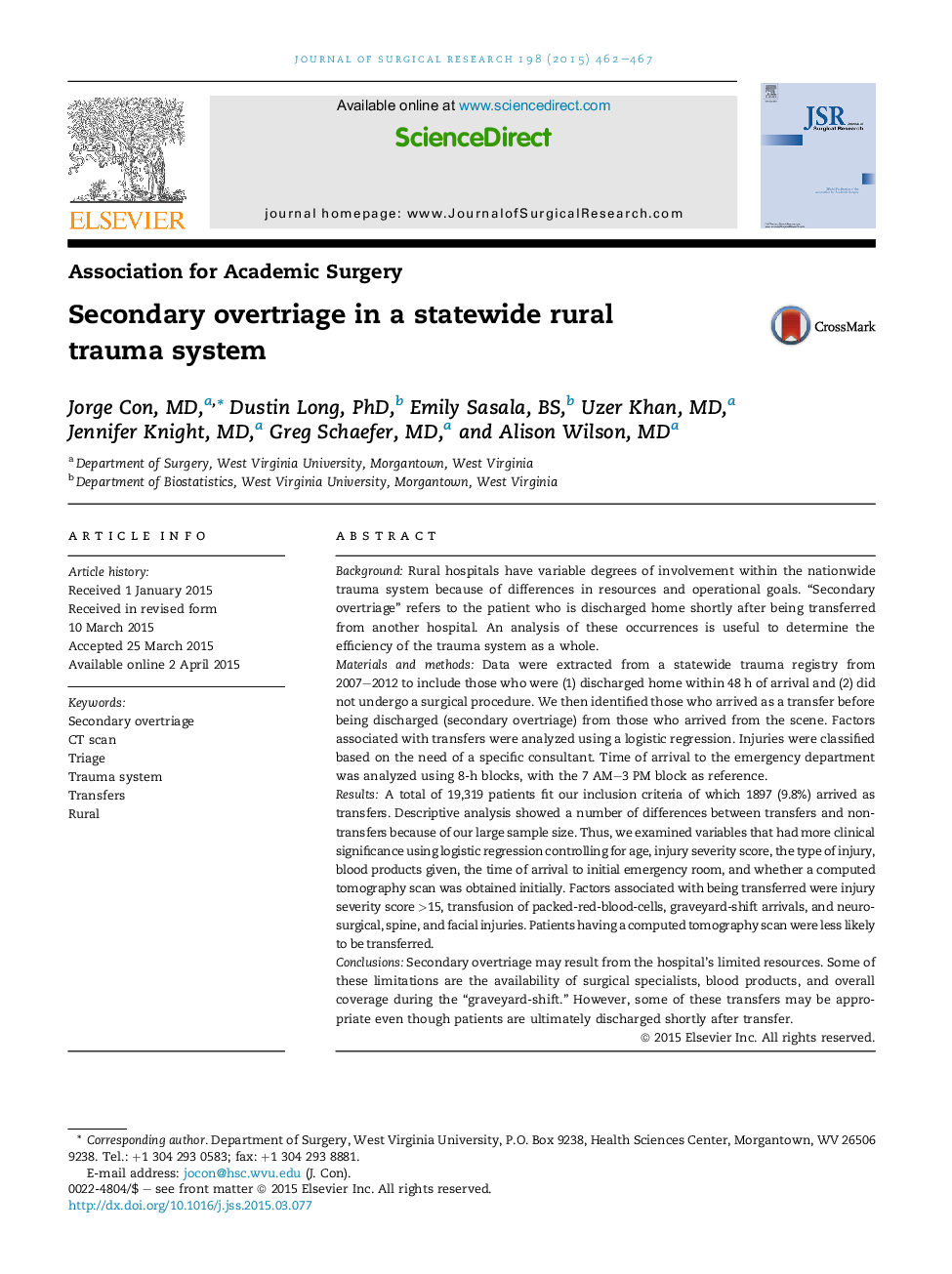| کد مقاله | کد نشریه | سال انتشار | مقاله انگلیسی | نسخه تمام متن |
|---|---|---|---|---|
| 4299731 | 1288399 | 2015 | 6 صفحه PDF | دانلود رایگان |
BackgroundRural hospitals have variable degrees of involvement within the nationwide trauma system because of differences in resources and operational goals. “Secondary overtriage” refers to the patient who is discharged home shortly after being transferred from another hospital. An analysis of these occurrences is useful to determine the efficiency of the trauma system as a whole.Materials and methodsData were extracted from a statewide trauma registry from 2007–2012 to include those who were (1) discharged home within 48 h of arrival and (2) did not undergo a surgical procedure. We then identified those who arrived as a transfer before being discharged (secondary overtriage) from those who arrived from the scene. Factors associated with transfers were analyzed using a logistic regression. Injuries were classified based on the need of a specific consultant. Time of arrival to the emergency department was analyzed using 8-h blocks, with the 7 AM–3 PM block as reference.ResultsA total of 19,319 patients fit our inclusion criteria of which 1897 (9.8%) arrived as transfers. Descriptive analysis showed a number of differences between transfers and nontransfers because of our large sample size. Thus, we examined variables that had more clinical significance using logistic regression controlling for age, injury severity score, the type of injury, blood products given, the time of arrival to initial emergency room, and whether a computed tomography scan was obtained initially. Factors associated with being transferred were injury severity score >15, transfusion of packed-red-blood-cells, graveyard-shift arrivals, and neurosurgical, spine, and facial injuries. Patients having a computed tomography scan were less likely to be transferred.ConclusionsSecondary overtriage may result from the hospital's limited resources. Some of these limitations are the availability of surgical specialists, blood products, and overall coverage during the “graveyard-shift.” However, some of these transfers may be appropriate even though patients are ultimately discharged shortly after transfer.
Journal: Journal of Surgical Research - Volume 198, Issue 2, October 2015, Pages 462–467
